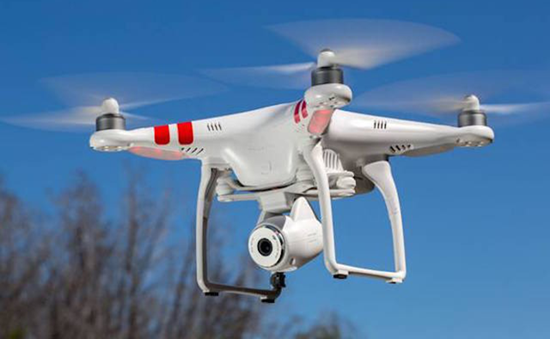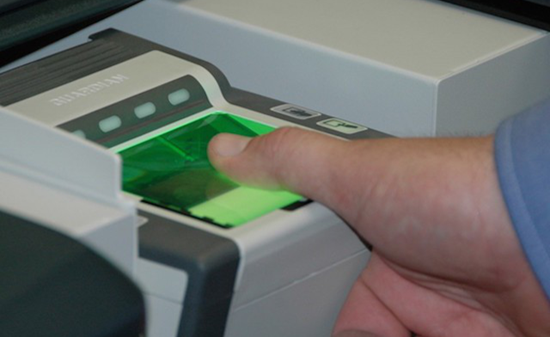
In 2013 it was revealed that the U.S. government had been spying on its own citizens as well as citizens of other countries around the world. It was then that many realized privacy was fast becoming a rare commodity. As technology continues to advance, slowly encompassing more and more of our lives, it’s becoming slowly apparent that everybody can kiss their privacy goodbye forever.
10. Hackers
As more of our valuable personal data is stored online, the number of criminals and outside entities bent on stealing that information grows as well - and we’re not just talking about the hackers that send out “Nigerian Prince” phishing emails anymore either. In the beginning half of 2014, 1.2 billion email addresses and usernames had been stolen along with 500 million records containing personal and business information - that includes banking data, medical data, and social security numbers.
The big problem here is that even if you are careful and you keep your username and password written down on a sticky note locked in a military grade vault a thousand feet below ground - guess what? - your information is still at risk. This is because companies that store your personal information on their servers are still vulnerable to hackers. So if you use the same username and password combination for every website out there, all that a hacker has to do is steal it from one site and start plugging it in into others to see if it’s a match. Hopefully they don’t figure out where you bank.
9. Facial Recognition Software
It’s no surprise that Facebook has become one of the biggest databases for photos on the planet, but the creepy part is how easily the social networking site can pick out your face from among a sea of others. Even creepier is Google’s facial recognition system, which can identify childhood pictures of existing users, even if they have never uploaded pictures of their younger selves before. The creepiest, however, is that government agencies are now using security cameras positioned in public places to watch everybody, all the time.
Stadiums, festivals, and even churches have now become common locales for cameras on the lookout for known criminals, terrorists, and other wanted figures. The problem is that the database federal software is combing through doesn’t just look at criminals, but also at civilians with no criminal record - meaning that your location in public could be known anywhere, at any time, just by cross-referencing your Facebook pictures.
8. Commercial Tracking Technology
With facial recognition software becoming as complex as it has, it’s no wonder that the government isn’t the only entity interested in its application. Retailers are extremely interested in how tracking software can analyze gestures, line of sight, and other consumer signals that influence buying. It’s important to note that being on camera when walking into a store is nothing new - they’ve been used for a while now to prevent shoplifting and vandalism.
The difference here is that these new systems try to predict a consumer’s emotions and make inferences about their intentions so that they can advertise to you when you’re most likely to buy. So not only will the omnipresent urban camera systems know where you are at all times, but also how you feel and possibly what you are about to do. Soon our retailers will know us better than we know ourselves.
7. Kinect
Microsoft and Sony’s next-gen consoles the Xbox One and PS4 respectively come with the option to play with an additional periphery device - basically a camera with a microphone attached. The Kinect and PlayStation Camera are used in games to track movements, receive voice commands, and create a better and more immersive gaming experience for users. Unfortunately, they also possess the ability to spy on you.
Of course, Microsoft and Sony have both denied that they would use these systems to mine data or spy on users…but Microsoft also claimed it never voluntarily turned data over to the government for their PRISM program (even though they were one of the first major companies to sign on to it). Whether their cooperation was voluntary or not, it still begs the question: Will Microsoft voluntarily let the government use the Kinect to spy on us, or will the government just go ahead and do it anyway?
6. Snooping Apps
It’s almost appalling how accepting many have become of the fact that our cell phones are already spying on us all the time. We know that they have GPS capabilities that give carriers and corporations our physical location at any given moment. We know that apps collect our phone numbers and the names of our contacts. But did we know that they are listening to us through our phone’s microphone?
That’s exactly what some apps are doing, including the Facebook app. These apps collect audio data from your phone in an attempt to figure out everything about you, including when you go to bed and when you wake up, what times you watch TV, and even what form of transportation you use to get to work. The aim is to market better to users, even though the trade-off is a considerable loss of privacy. The best part? The ability to spy on you is being touted as a cool feature instead of an invasion of privacy.
5. X-Ray Vision Police Radar
While the Fourth Amendment to the Constitution prohibits unreasonable searches and seizures without a warrant, it hasn’t stopped police departments from deploying a new radar system that can see through walls. These radars track movements as delicate as human breathing through walls up to 50 feet away, meaning they not only can tell if a human being is in a house, but where they are in the house and whether or not they’re moving.
While a 2001 Supreme Court ruling states that officers must obtain a warrant when using electronic surveillance that sees through walls, officers used this new radar to conduct a search without a warrant in late 2014. The 10th Circuit appellate court’s ruling in the same year in favour of the police’s warrantless tactic brings a new gravity to the old phrase, “you can run, but you can’t hide.”
4. Drones
As more commercial and privately operated drones begin to fly our friendly skies, more concerns are being raised about our privacy in their midst. More and more reports of citizen complaint against private drone operators have been popping up, while concurrently, big corporations have been eyeing the technology for commercial application. Global giants Google and Amazon have both tested drones out, but law enforcement agencies are already using them to patrol borders, conduct searches, and assist in other capacities.
Drones aren’t silent by any means, but they are definitely not as noisy as a helicopter, plus they can fit into tighter spaces. When outfitted with other technologies, such as cameras, facial-recognition software, and even possibly weapons, these friendly hovercraft adopt a more ominous visage. Imagine a fleet of eyes in the sky that never rest, never falter, and always know where everything and everyone is - at all times.
3. Satellite Cameras
With all this talk of facial recognition software and cameras, it really makes you wonder where the next camera is going to snap a picture of your face from. It could be from any closed circuit system in a store, any drone flying low over a city, and now even from the final frontier: space. Multiple firms have begun installing satellite networks that can take high-resolution pictures of anywhere on earth, including Google for their popular Maps and Earth programs, as well as smaller companies that plan to sell these worldly prints.
While the imagery is stunning, the privacy concerns are pretty obvious here - these satellites aren’t drones that hover above you in plain sight, but invisible watchers that see and film you from their orbital network miles above our atmosphere. Google has assured the public that while they are able to look at things as detailed as vehicles, they are not able to define license plate numbers or facial features…at least not yet. The day is coming soon that satellites will be able to see a booger on your face or where you buried your loot in the backyard.
2. Biometric Scanning
One of the coolest new features that phones and tablets are touting comes in the form of biometrics - specifically fingerprint scanning. While these features are intended to make devices more secure, some have proven that they can actually help to break into a device, while still others warn about the dangers of utilizing biological data as passwords (the whorls in your fingerprint or your specific genetic markers for example).
Much like credit card data, once your biometric data is on file in a government or corporate server, it’s not entirely in your hands to protect anymore. Worse still, while you can cut up and replace credit cards, there’s no changing your biometric data (currently). Unfortunately, that hasn’t stopped big business at large from delving into the biometric craze. In fact, the Department of Defense is perfecting a camera that can take data-base quality iris scans of every person in a crowd from a distance of 10 meters. Time to start rocking that Terminator 2 look and wear dark sunglasses all the time.
1. RFID Chips
Radio-frequency I.D. chips are about as small as a grain of rice, and have been used by companies such as Walmart, embedded in products such as jeans and underwear, to track consumer movements and habits. While they’re easy enough to stick into clothes, it starts to get extremely creepy when people start putting them in their bodies - and the employees of one company in Sweden have begun to do just that.
The benefit of embeddable RFID chips are that they can contain information such as your complete medical history for doctor’s visits, or in the case of the Swedish company, they can act as security badges. Unfortunately, they can also act as tracking chips, and, to somebody with enough interest, can be hacked very easily. Privacy advocates are extremely concerned that as companies and healthcare firms begin to offer RFID solutions, the norm will eventually shift toward accepting and having them, effectively making them mandatory (much like the rise of the internet). As soon as that happens we’ll all be tagged, and left with about as much privacy as cattle in a pen.








No comments:
Post a Comment
Please adhere to proper blog etiquette when posting your comments. This blog owner will exercise his absolution discretion in allowing or rejecting any comments that are deemed seditious, defamatory, libelous, racist, vulgar, insulting, and other remarks that exhibit similar characteristics. If you insist on using anonymous comments, please write your name or other IDs at the end of your message.